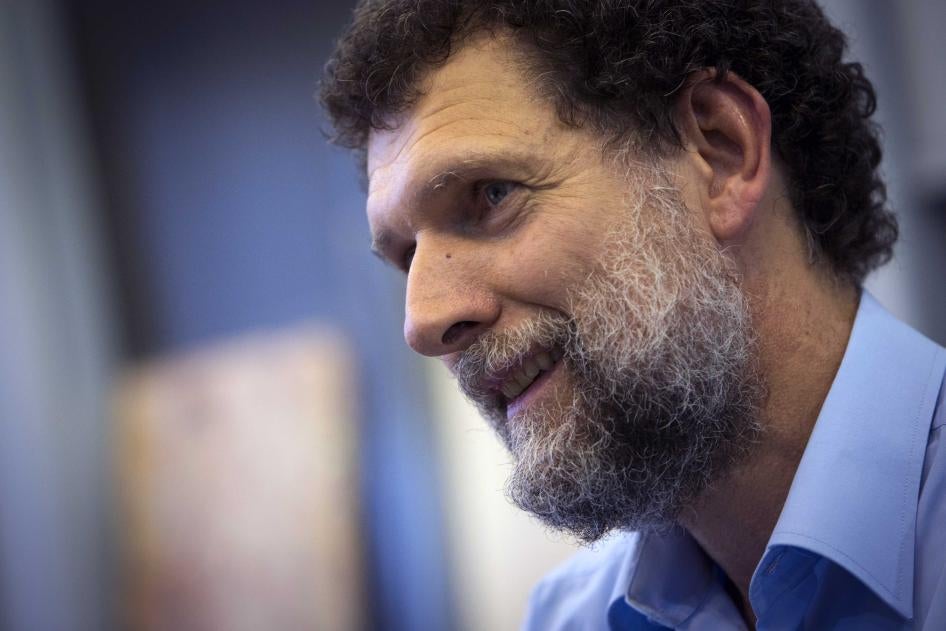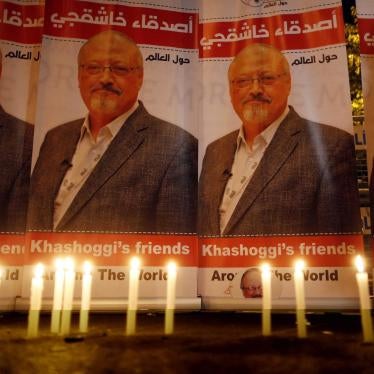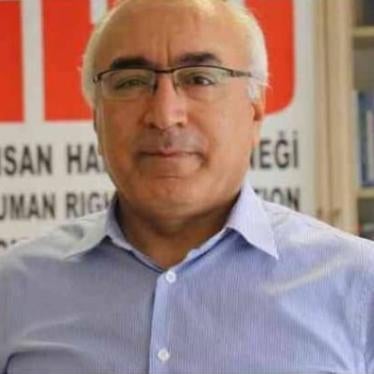(Istanbul) – The conviction on April 25, 2022 of the human rights defender Osman Kavala and his seven co-defendants is a shocking miscarriage of justice, Human Rights Watch said today.
The Istanbul 13th Assize Court sentenced Kavala to life in prison without parole on charges of attempting to overthrow the government and the seven others to 18 years on charges of aiding and abetting. The charges refer to their alleged leading roles in mass protests in 2013 that began in Istanbul’s Gezi Park.
“The conviction of Osman Kavala and the seven others in a sham trial where wild assertions and conspiracy theories stood in for anything resembling evidence is a gross violation of human rights and ample proof that Turkey’s courts operate under instructions from the Erdogan presidency,” said Kenneth Roth, executive director of Human Rights Watch. “The war in Ukraine should not allow Turkey’s international allies to turn a blind eye to the severe crisis for the rule of law and human rights at home exemplified in this latest verdict and sentences.”
Kavala’s seven co-defendants, whom the court ordered arrested immediately, are Mücella Yapıcı, an architect; Can Atalay, a lawyer; Tayfun Kahraman, a city planner and academic; Çiğdem Mater, a filmmaker; Mine Özerden, a rights defender; Hakan Altınay, an educator; and Yiğit Ekmekçi, founder of a university and a businessman.
Kavala has already spent four-and-a-half years in detention on baseless charges of attempting to overthrow the government and the constitutional order and espionage for allegedly organizing and financing the Gezi Park protests and involvement in the July 15, 2016 coup attempt against the government of President Recep Tayyip Erdogan. On April 25, the court acquitted him on the espionage charge and prolonged his detention based on his conviction on the charge of attempting to overthrow the government. Lawyers are appealing all defendants’ convictions and detentions.
In December 2019 the European Court of Human Rights found that Turkey had used detention for political ends, violating Kavala’s rights, including his right to liberty, and acting in bad faith.
The Kavala judgment, like all European Court of Human Rights judgments, is legally binding, yet the Turkish authorities ignored the Strasbourg court’s ruling. It also ignored the call for his release and full restoration of his rights by the Committee of Ministers, which represents the Council of Europe’s 47 member states. In response, the Committee of Ministers voted on February 2 to begin infringement proceedings against Turkey for noncompliance with the European Court’s ruling, an important move to support human rights protection in Turkey and uphold the international human rights framework.
The Turkish courts and prosecutors have engaged in a series of tactics to circumvent the authority of the European Court and the Council of Europe, using domestic court decisions to prolong Kavala’s detention and extend the life of baseless prosecutions. The courts have issued sham release orders, initiated multiple criminal proceedings against Kavala on the same facts, and separated and re-joined case files accusing him of bogus offenses. The convictions against Kavala and the seven others are the culmination of this process at the lower court level.
Turkey’s international partners should ensure that the unjust conviction of Kavala and the other defendants in the Gezi case has political consequences. In particular, the European Union’s proposed “positive agenda” with Turkey is wholly incompatible with Turkey’s failure to release Kavala in line with the European Court’s judgment, and made infinitely worse by the convictions, draconian sentencing, and detention orders for Kavala and his co-defendants.
The European Commission and EU member states should urgently review their engagement with Turkey and condition the opening of talks on the Customs Union modernization, requested by Ankara; to the release of Kavala and any of the others detained; repeal of the Gezi verdict; implementation of judgments from the European Court of Human Rights; and tangible progress on improving Turkey’s human rights record and ensuring the independence of its judiciary.
“The convictions should be read as Turkey’s defiant answer to the Council of Europe, which in February took the unprecedented step of triggering infringement proceedings against Turkey over its refusal to comply with the European Court’s judgment calling for Kavala’s release,” Roth said. “The European Court of Human Rights is due to rule again on the Kavala case and the convictions will surely expedite the infringement procedure against Turkey and deepen the crisis in the country’s relations with the Council of Europe.”









